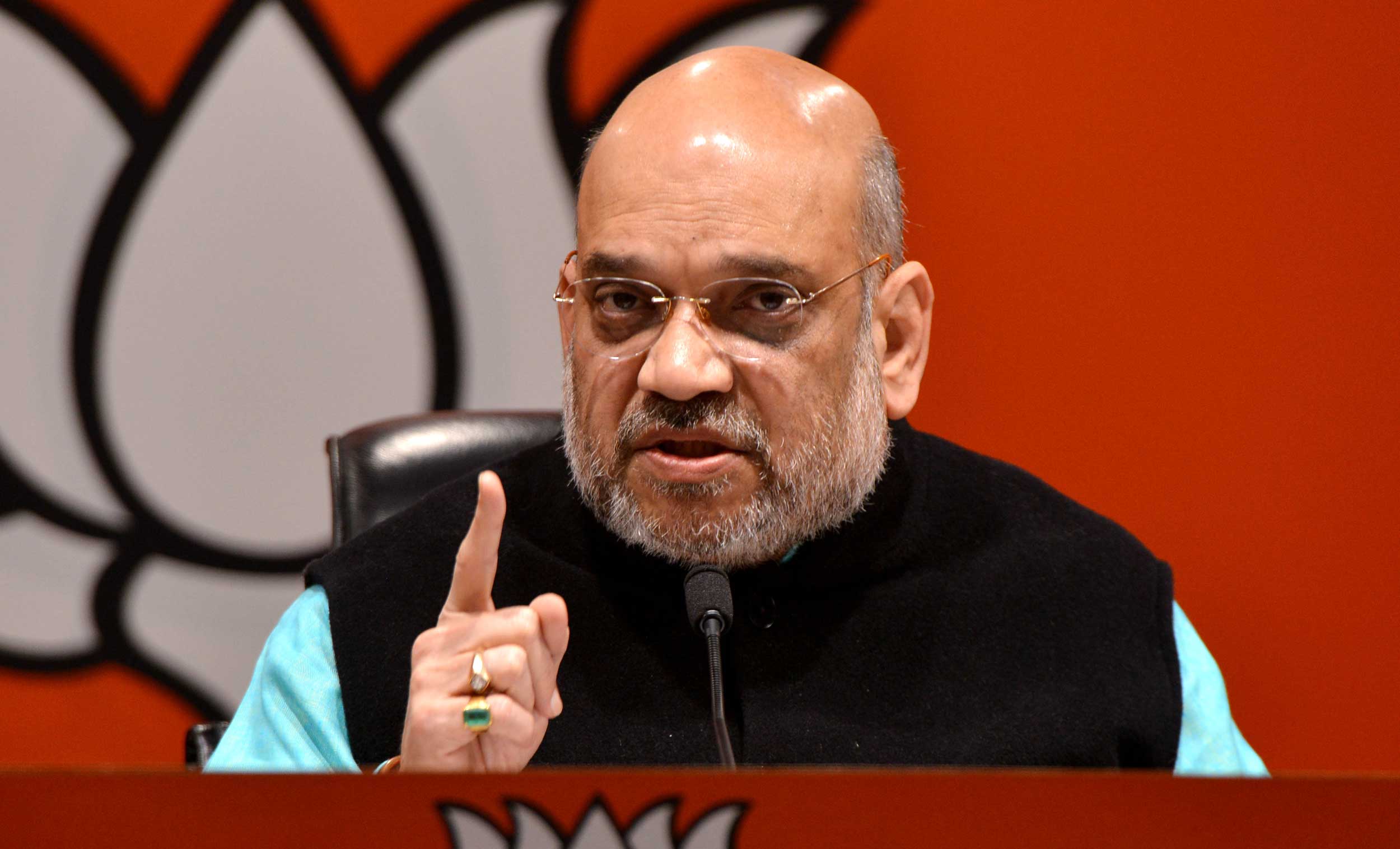Union home minister Amit Shah seemed to suggest on Wednesday that a countrywide National Register of Citizens was a foregone conclusion, resurrecting a sensitive issue in the run-up to several localised but bellwether electoral battles.
“Jab NRC ki prakriya deshbhar mein hogi, usi wakt Assam mein bhi NRC ki prakriya swabhavik rup se phir se ki jayegi (When the NRC drive will be carried out across the country, the exercise will naturally be conducted afresh in Assam),” Shah told the Rajya Sabha on Wednesday.
Shah almost passed off the proposed national exercise as a given but the statement was freighted with several political messages.
- One, Shah signalled a fresh exercise in Assam, a BJP-ruled state where there has been considerable disquiet ever since the final NRC triggered speculation that nearly 14 lakh of the 19 lakh people excluded could be Hindus, not Muslims as assumed initially.
- Two, Shah made it clear that the NRC and the Citizenship Amendment Bill are separate processes. “The NRC provides for the registration of people who are already citizens,” Shah said. The Citizenship Bill will grant rights to non-Muslim refugees from India’s immediate neighbourhood.
- The clarification holds significance for Bengal where many people, regardless of their religion, are without papers. While the Citizenship Bill may take care of the concerns of Hindu refugees, there is lack of clarity on what would happen to citizens without valid personal papers or proof of ancestry.
- Chief minister Mamata Banerjee — whose Trinamul Congress is locked in a fight with the BJP in three bypoll seats, two of which are near the border and one houses a considerable number of Hindu refugees — pounced on the opportunity provided by Shah and iterated her resolve to oppose the NRC exercise in Bengal.
“There are some people who are creating panic among people by saying the NRC would be implemented in Bengal. Don’t listen to these leaders as they are outsiders. I will not allow anyone to drive away a single citizen from our state. It is not possible in Bengal,” Mamata told a rally in Murshidabad on Wednesday.
- Yet, Shah has chosen to revive the NRC debate nationwide probably because of the concerns in Assam, where the BJP government interpreted his statement as a virtual intent to reject the final NRC although the issue is in the Supreme Court now.
- Another factor that may have prompted Shah are the upcoming by-elections in Karnataka, where the BJP must win a handful of seats to stay in power. Of late, a campaign targeting Bangladeshis had reared its head in Karnataka. Preparations have also begun for elections in Delhi, which too has a sizeable population of alleged Bangladeshi migrants.
Shah sought to assure the country that the NRC would not discriminate on the basis of religion. But the discrimination question was more apparent on the Citizenship Bill, on which Shah did not signal any rethink.
Shah told the Rajya Sabha that all citizens of India irrespective of religion would figure in the NRC list.
Shah said the government would bring in the Citizenship (Amendment) Bill afresh as the previous one had lapsed on the expiry of the term of the 16th Lok Sabha.
When Trinamul MP Sukhendu Sekhar Roy pointed out that out of the 19 lakh people excluded from the NRC in Assam, around 11 lakh were Bengali Hindus, Shah reinforced the Centre’s stand that it accepts that Hindu, Buddhist, Jain, Christian, Sikh and Parsi refugees who left Pakistan, Bangladesh and Afghanistan because of religious persecution should get Indian citizenship.
“Although the majority of them (Assam residents) produced documents in support of their citizenship, they have been excluded. My question is: Will the government grant citizenship to all the genuinely affected Indians (left) out of the NRC without waiting for six years?” Roy asked.
In reply, Shah referred to people from the six faiths but made no mention of Muslims.
The original starred question on the NRC had been asked by Congress leader Syed Nasir Hussain, who wanted to know if the NRC provides for citizenship to immigrants of six non-Muslim faiths.
Hussain asked a supplementary question to seek a clarification on Shah’s statement in Calcutta that people belonging to non-Muslim faiths need not worry.
“The home minister, while speaking in Calcutta, had said that all those people, belonging to Hindu, Sikh, Christian, Jain and Buddhist communities, whose name is not there in the NRC, need not worry. I just want to ask the government and the home minister whether the NRC can give citizenship to any immigrant belonging to these communities, leaving out Muslims alone,” Hussain asked.
Shah replied: “The member has confusion about Citizenship (Amendment) Bill and NRC. There is no such provision under NRC to deny registration of citizens of any particular religion. It will include people of all religions who are citizens of India. There will be no discrimination under the NRC. The NRC and the Citizenship (Amendment) Bill are different processes.”











